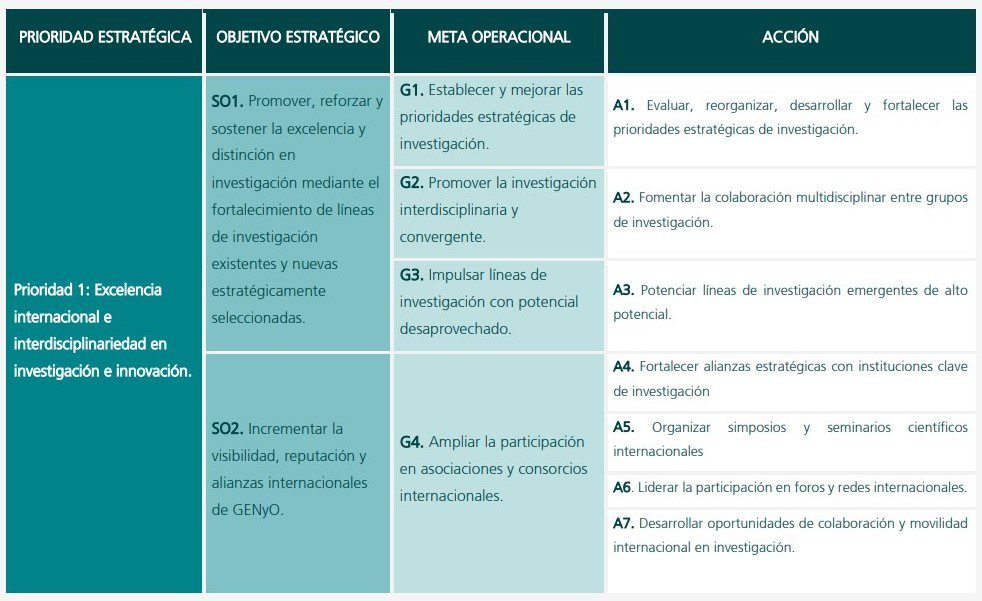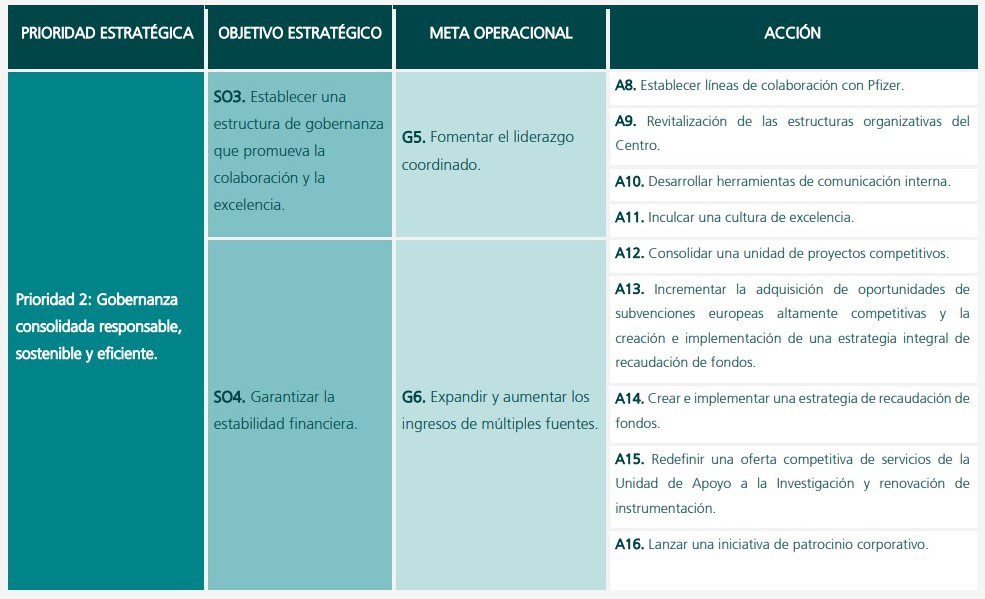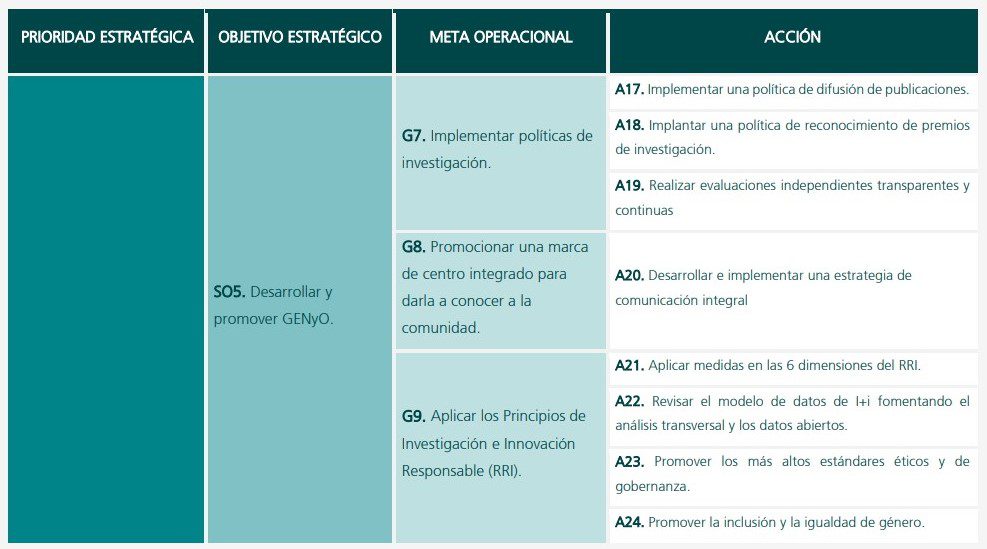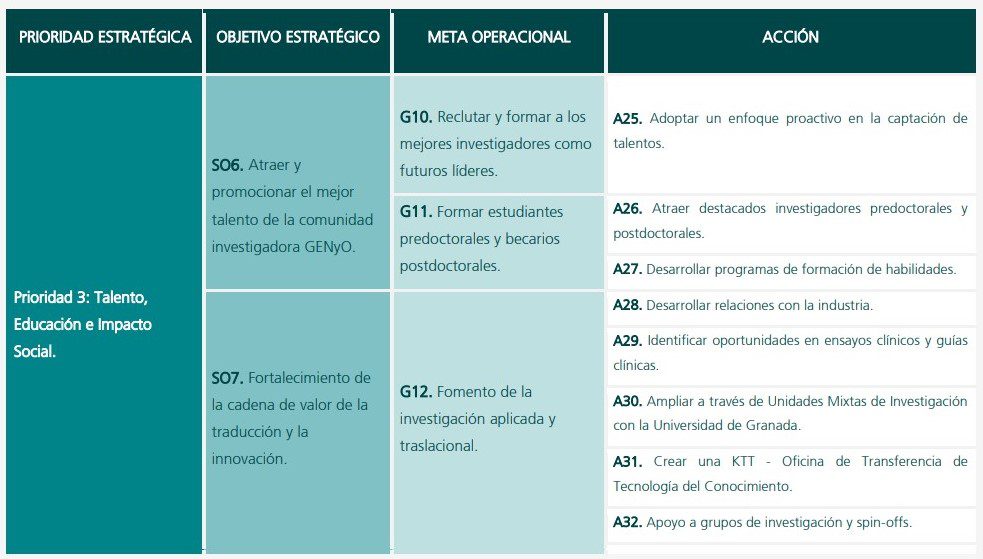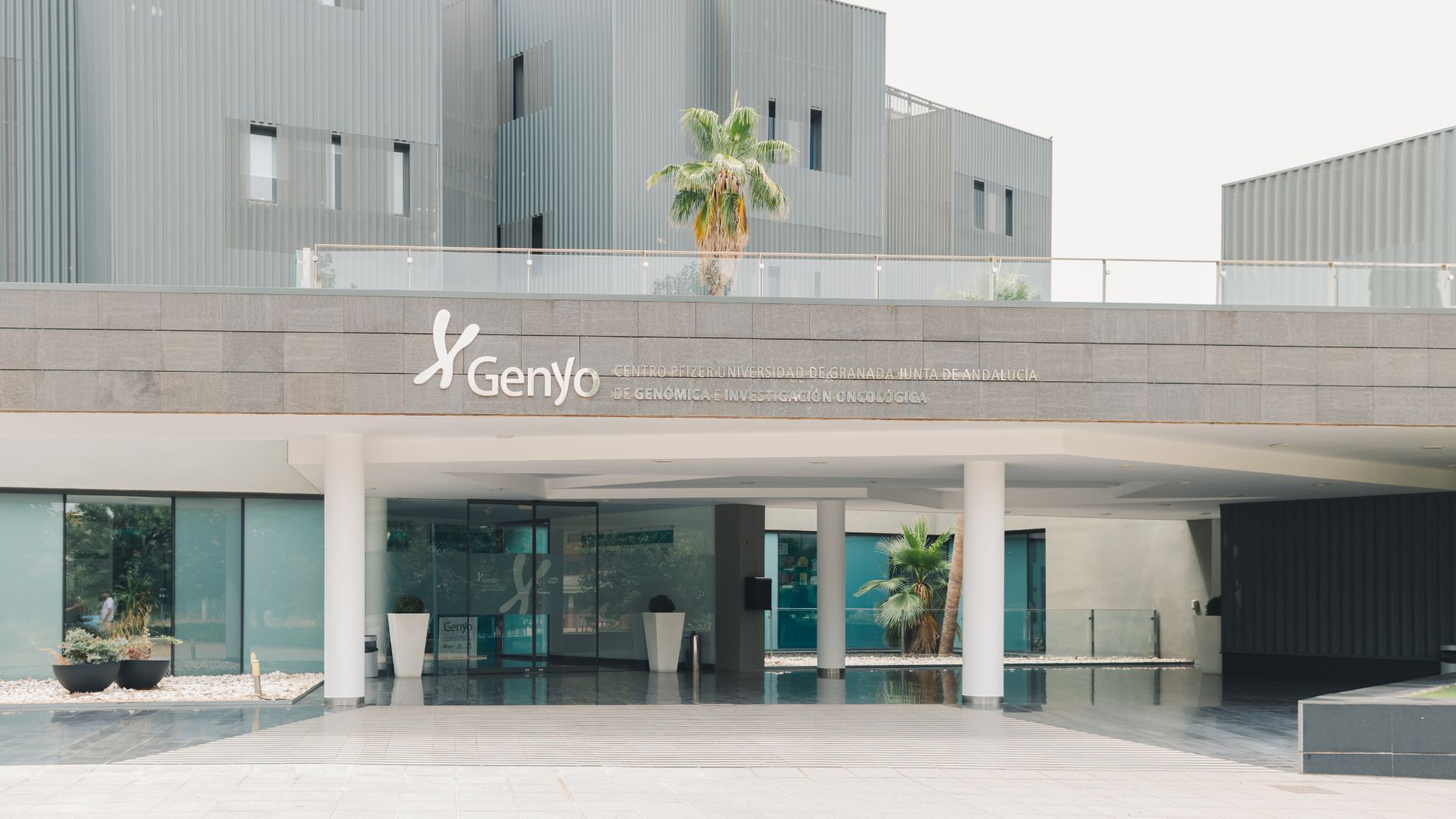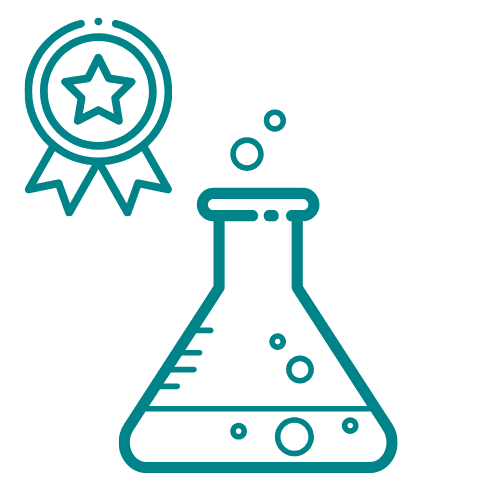There are no projects in the garbage can.
The Research Areas in which GENyO will work can be grouped into two main areas (Basic and Applied), each with two Strategic Lines:
GENyO, as a consolidated centre of excellence, has a transversal structure of scientific-technical support units that are essential for the development of its strategic lines of research. These units – Genomics, Cytometry, Microscopy, Cell Culture and General Services – are managed by highly qualified technical staff and supervised by responsible researchers who coordinate their operation together with the management and administration of the centre.
These platforms not only support the internal research groups, but also offer specialised services to external institutions, such as the University of Granada and national and international research centres. In particular, the Genomics Unit is a reference for its experimental design, sequencing and bioinformatics analysis services.
In parallel, GENyO has developed transversal strategic lines that combine research and services with high added value:
Several strategies are employed in accordance with our Vision and Mission. These strategies pertain to GENyO’s three strategic priorities as reflected in the Strategic Plan:
1. International excellence and interdisciplinarity in research and innovation.
2. Responsible, sustainable and efficient consolidated governance.
3. Talent, Education and Social Impact.
Each of the three strategic priorities has specific objectives, which are translated into concrete actions that will contribute to their achievement.
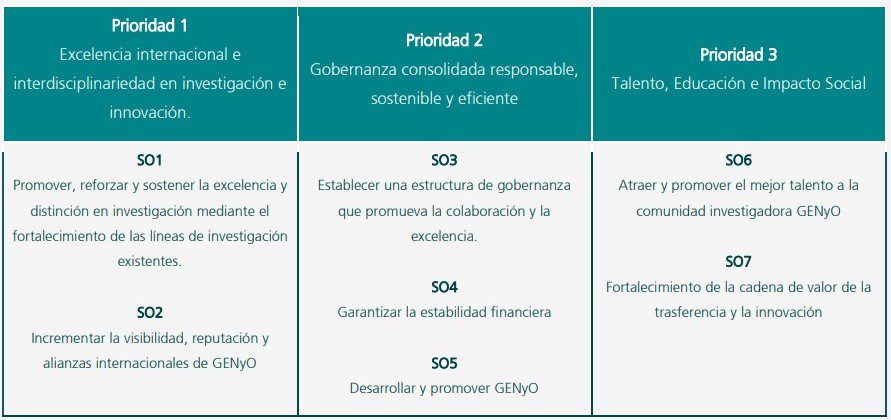
To achieve each of the strategic objectives, they are broken down into specific goals and measures in order to translate the objectives into concrete actions.
The following tables illustrate the cascade of the Plan’s 3 strategic priorities, with 7 strategic objectives, 12 operational goals and 33 implementable measures.
